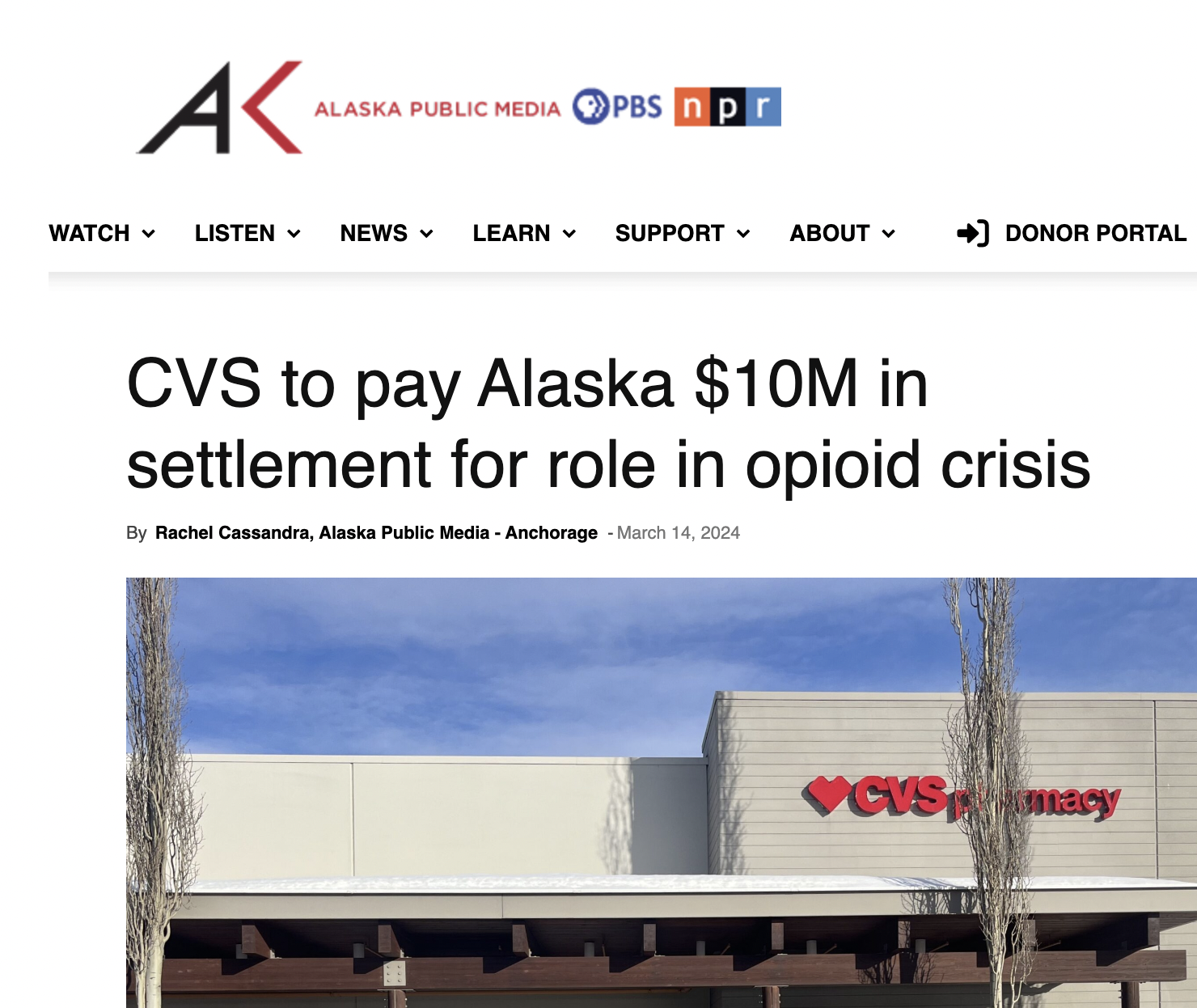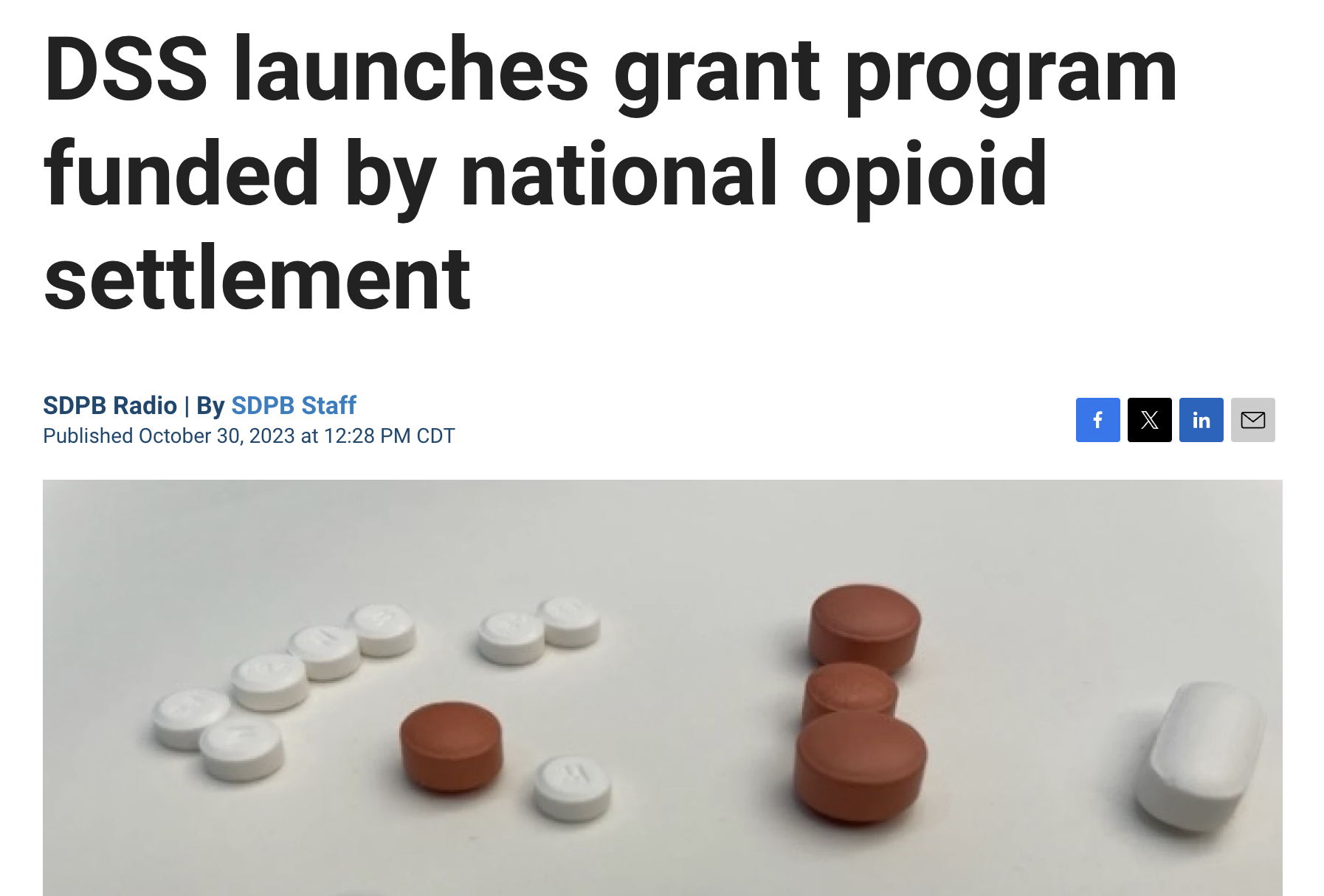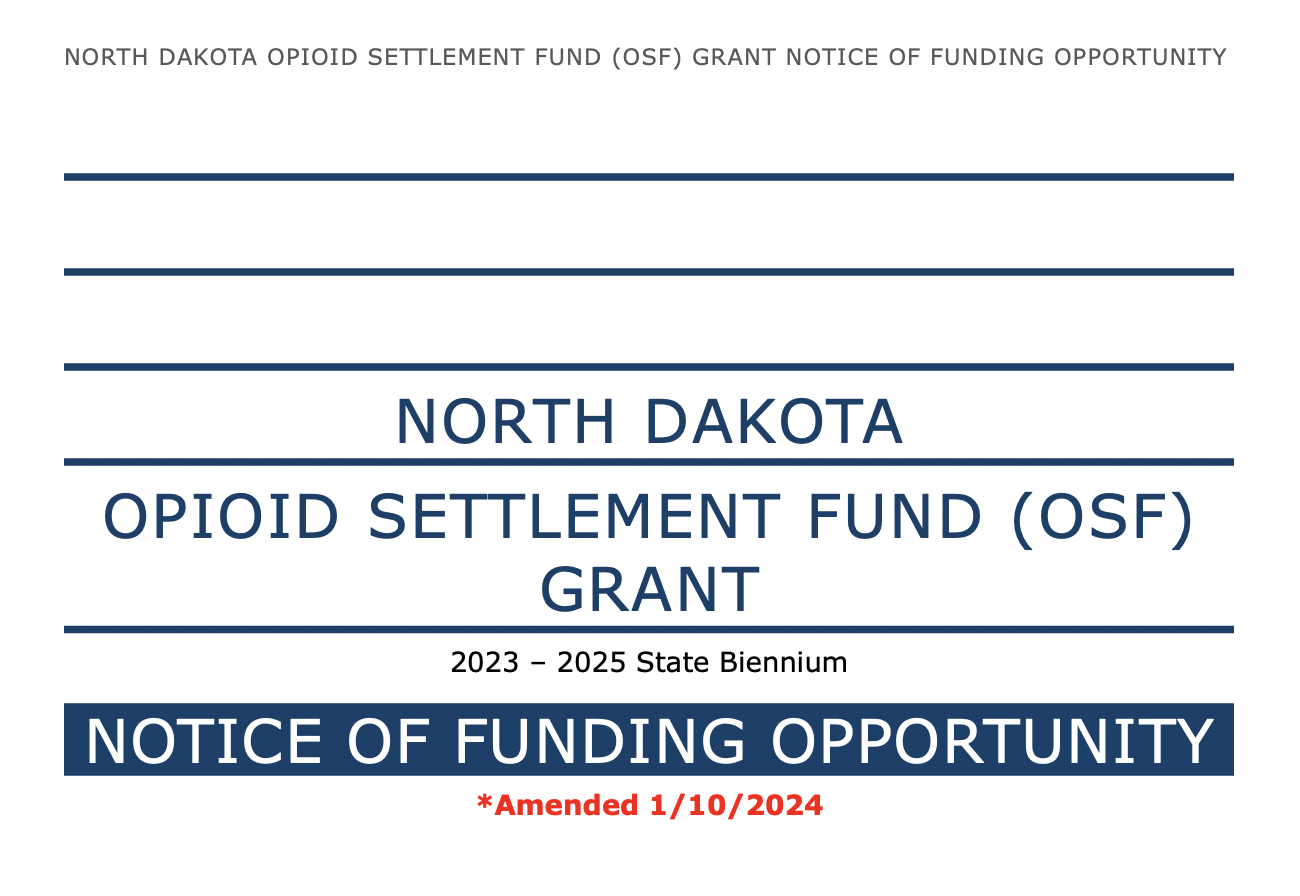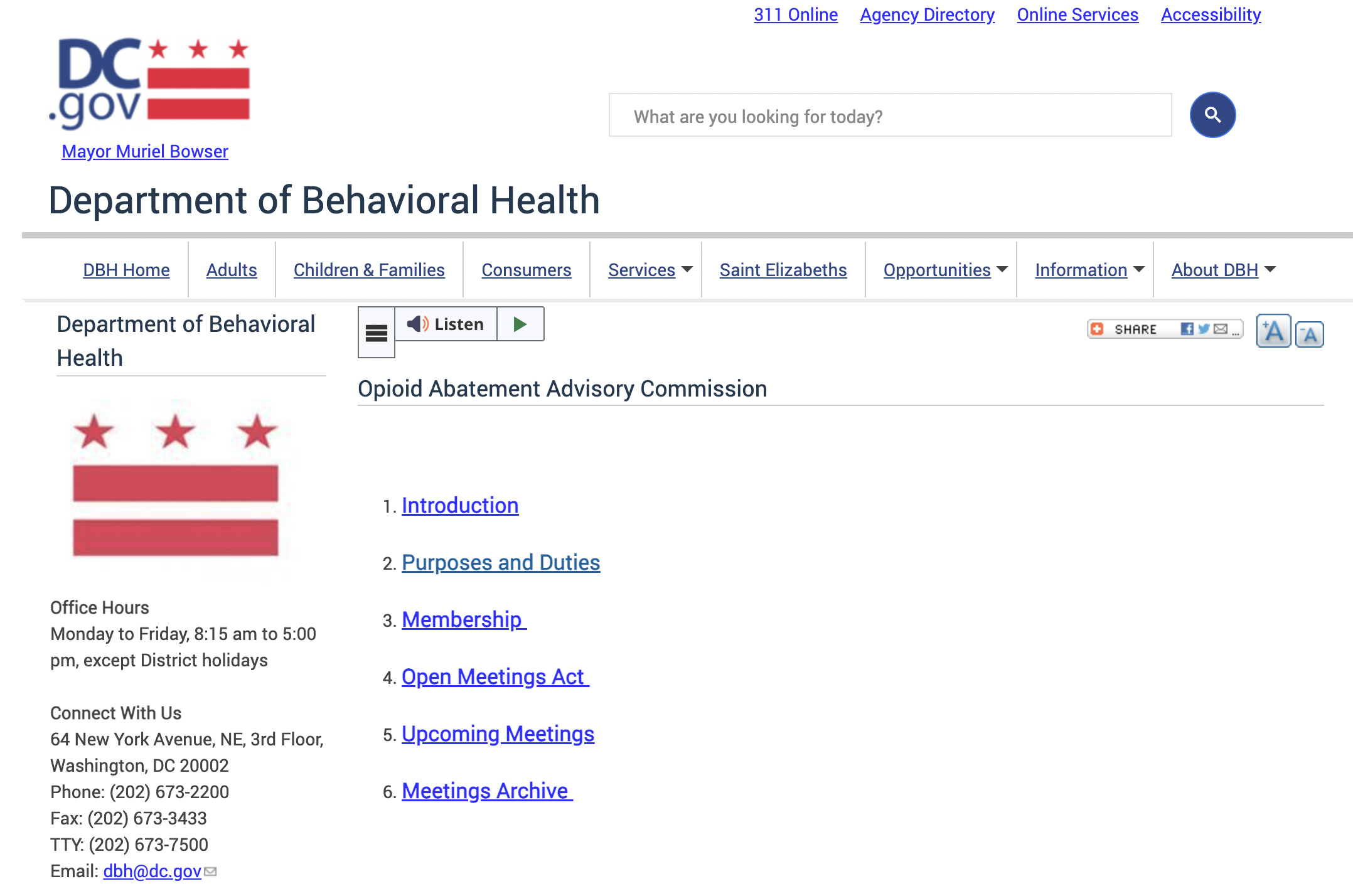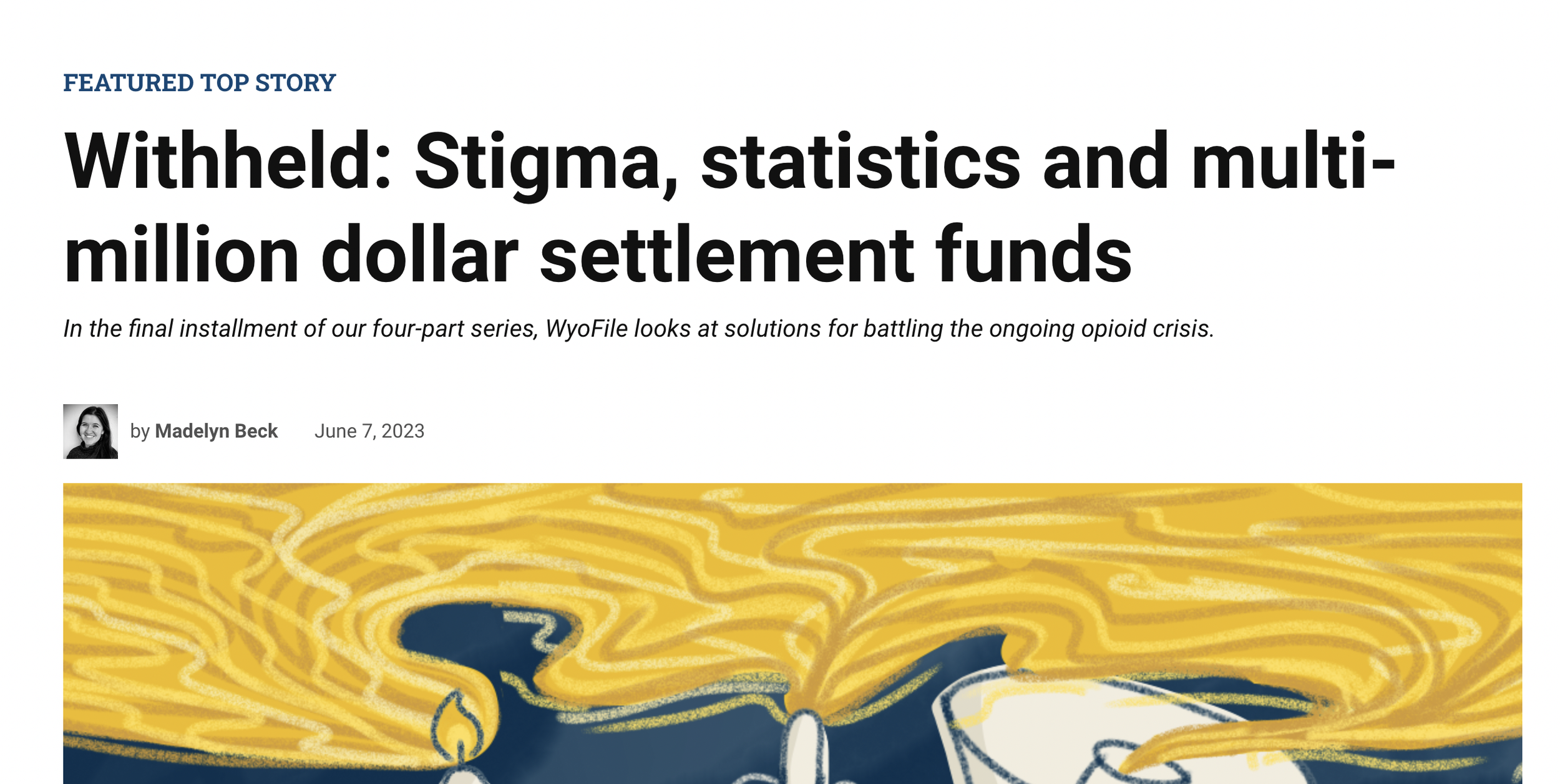South Dakota Offers a Variety of Grant Opportunities with Opioid Settlement Money
South Dakota has begun processing applications for opioid settlement money. The state plans to split the funding, with 70% of the money controlled at the state level and the remainder controlled by local governments.
South Dakota has launched the South Dakota Opioid Settlement Fund Community Grant Program to oversee distribution of opioid settlement money in the state. The application process is currently closed but it will reopen in October 2024 for another round of applications.
The Department of Social Services offers a variety of grant opportunities for the addiction treatment community. Some of these programs use opioid settlement funds, others don’t. You can find a list of all of these opportunities at their website.
North Dakota is Currently Accepting Grant Proposals for Opioid Settlement Money for Sober Living Homes
North Dakota has empowered its Health and Human Services Behavioral Health Division to create a mechanism for distributing the $7 million opioid settlement it is slated to receive. At least 20% of that money must be used for opioid use prevention.
Grant proposals are currently being accepted on a rolling basis, with deadlines for applications coming in July 2024 and October 2024.
Alaska is Lagging Behind Other States with Opioid Settlement Funding Opportunities
Alaska has a small population compared to other states, but the opioid crisis has hit Alaskans disproportionately hard. In Between 2010 and 2017, there were enough opioid prescriptions written and filled in Alaska to supply every person in the state with 400 pills at any given time. It was found that pharmacies in the state completely failed to protect the population from an overwhelming influx of opioids that were obviously being abused.
Unfortunately, Alaska is lagging behind other states in disbursing the $58 million it is expecting to receive in opioid settlement money. Lawmakers have not yet established how the funds will be used, who will direct those decisions, or what checks and balances will be put in place to ensure that the money is spent responsibly.
Washington D.C. is not Forthcoming With Information About Opioid Settlement Funding Grant Application Process
Washington DC is set to receive over $80 million over the course of the next two decades from opioid settlement funds. DC established the Opioid Abatement Advisory Commission to make decisions about how this money will be spent. The Commission began meetings in October 2023, which can be accessed online via a zoom link. There is no published information about how to apply for funding through this commission or what organizations may or may not be eligible for funding. There is, however, contact information for each committee member, as well as information about upcoming meetings. It’s possible that contacting the commission directly would be the most effective way to inquire about funding opportunities, if they exist.
It’s unclear if sober living homes are qualified to receive funding from the DC opioid settlement money. We do know, however, that the Opioid Abatement Advisory Commission is working in association with LiveLong DC, the governmental entity that oversees and coordinates addiction treatment efforts in DC. LiveLong DC identifies four categories of interest: prevention, harm reduction, treatment, and recovery. That last category - recovery - could include sober living home efforts, implying that the Commission may also place a priority on sober living with it’s spending decisions. This is, of course, speculative. Without good information available publicly, it’s difficult to say how DC will be allotting opioid settlement money.
Wyoming Will Allow Local Governments to Control Most of its Opioid Settlement Money
Wyoming is set to receive just $4.38 million in opioid settlement money, one of the lowest determinations of any state.
True to its reputation for DIY spirit, Wyoming will allow local governments to control the bulk of the funding and make decisions locally about how it is spent. Wyoming Department of Health - a centralized state organization - will receive just 35% of the funds, while local governments will control the remainder of the money.
Oversight of local government spending is limited, but we do know that the Wyoming Department of Health has reported that they plan to spend $575,000 on “educational media,'' including a website about the opioid crisis and staff to monitor opioid overdose numbers.
More Updates on Opioid Settlement Money and How Sober Living Homes Can Leverage This Important Resource
Sober Living App Helps Sober Living Succeed
Sober Living App makes it easier - and more profitable - to operate sober living homes.
Our all-in-one app handles rent collection, admissions, property management, residents’ care coordination, community contacts, transportation details, calendars, staff, alumni and more - all from the convenience of your phone.
Claim your free trial today and see why more sober living homes prefer the Sober Living App.


